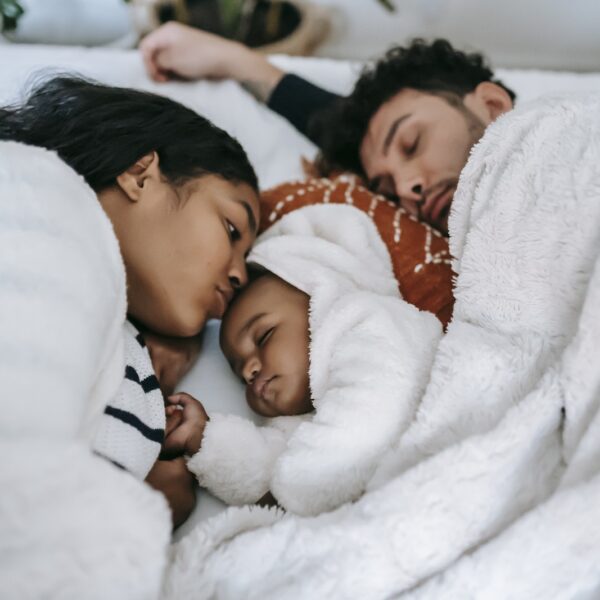Whether your condom broke or you forgot to use one, unprotected sex means that there’s a chance of pregnancy and sexually transmitted infections (STIs). But it doesn’t have to be the end of the world.
Pregnancy happens when sperm meet an egg on ovulation day and fertilize it. The fertilized egg then releases a hormone called hCG that a home pregnancy test can detect.
1. Take a pregnancy test
Pregnancy tests are a must-have for anyone who’s worried about an unwanted pregnancy – This part is credited to the portal’s author https://sexxxnet.com. They detect a pregnancy hormone called human chorionic gonadotropin (hCG) in your urine. hCG starts to show up in your body after an embryo has implanted into the lining of your uterus, which can happen anywhere from six to 12 days after you’ve had unprotected sex or a missed period.
The best time to take a pregnancy test after you have unprotected sex is on or around the first day of your missed period. This is usually two weeks after you had sex if your menstrual cycle is regular, and it could be even sooner if the unprotected sex happened during or just before ovulation.
Whether you can or can’t take a pregnancy test depends on how many days after your last menstrual period you had unprotected sex, your method of ovulation, and the type of test you choose. For example, most home pregnancy tests can only detect hCG in your urine about six days after the fertilized egg attaches itself to the lining of your uterus.
However, some at-home pregnancy tests can provide a result as early as eight days after you’ve had unprotected sexual activity. This is a good option for women who’d like to know their results earlier, but it’s important to note that these tests can sometimes be inaccurate.
2. See your GP
It’s important to see a doctor after unprotected sex to talk about your options and prevent an unwanted pregnancy or sexually transmitted infection (STI). Your GP can prescribe you emergency contraception, give you a prescription for a longer-term birth control method or refer you to a specialist for treatment of STIs.
When you go to see your GP, they will ask you how often and with whom you had sex, and whether or not you’ve had any symptoms. If you’re worried about being pregnant, tell your GP and they can arrange for a urine test.
A urine test is the most accurate way to check for a pregnancy, but it’s not foolproof. Sometimes, there can be too much blood or protein in the urine, which can cause a false positive. This is why it’s also good to take a pregnancy test again once you miss your period or two weeks after having unprotected sex.
It’s also worth going to see your GP if you have a sore tummy, need to pee a lot or are feeling sick. That’s because having sex increases your risk of getting a urinary tract infection, which is caused by bacteria getting into your urethra. Your GP can prescribe you antibiotics or refer you to a specialist for treatment.
3. Take the Ella morning-after pill
The ella morning-after pill (aka ulipristal acetate) is super effective at preventing pregnancy and it’s safe for most people. It works by blocking sperm from fertilizing an egg, and it can lower your chances of pregnancy by up to 85% if you take it within five days (or 120 hours) after unprotected sex. It can also make your period different, so if you plan to take it, you might want to start using a backup method (like condoms) while you’re taking it and for the first week after.
You can get a prescription for ella from a doctor or nurse, and you can ask your GP to keep a supply of it in your medical file in case you need it in the future. You can also get it for free or low-cost from your local Planned Parenthood health center or other family planning clinic, and many insurance plans cover it too.
When you’re taking the ella, it can cause some side effects like nausea or vomiting, and about 16 percent of women who use it experience a change in their menstrual bleeding pattern, so it might come lighter, heavier, sooner, or later than normal. But don’t let those side effects discourage you from getting the ella if that’s what you need — it’s totally worth it to avoid an unwanted pregnancy.
4. Talk to your partner
Talking openly about sex can feel awkward, but it’s important for everyone to feel safe and connected in their relationships. It’s a great way to strengthen the trust in your relationship, and can make sex more fun. It can also help you avoid having regrets in the future.
Practicing safer sex is essential to staying healthy, especially for LGBTQ people. Barrier methods like condoms and dental dams are key to preventing STIs. But there are many other ways to keep yourself and your partners safe – including regular sex, abstaining from drugs and alcohol, and using birth control (pills, ring, shot, implant, IUD or intrauterine device) for the most effective protection against pregnancy and STIs.
Even if you use birth control, it’s important to get tested for STIs regularly. That’s because it takes a while for signs of some STIs to show up, and they can be transmitted from unprotected sex.
Make sure your partner knows what to do if a condom breaks or if they miss a pill or injection. And talk about other emergency contraception options – you can buy the morning-after pill at drugstores, and you can have a copper IUD or implant put in by your doctor.




Leave a Comment